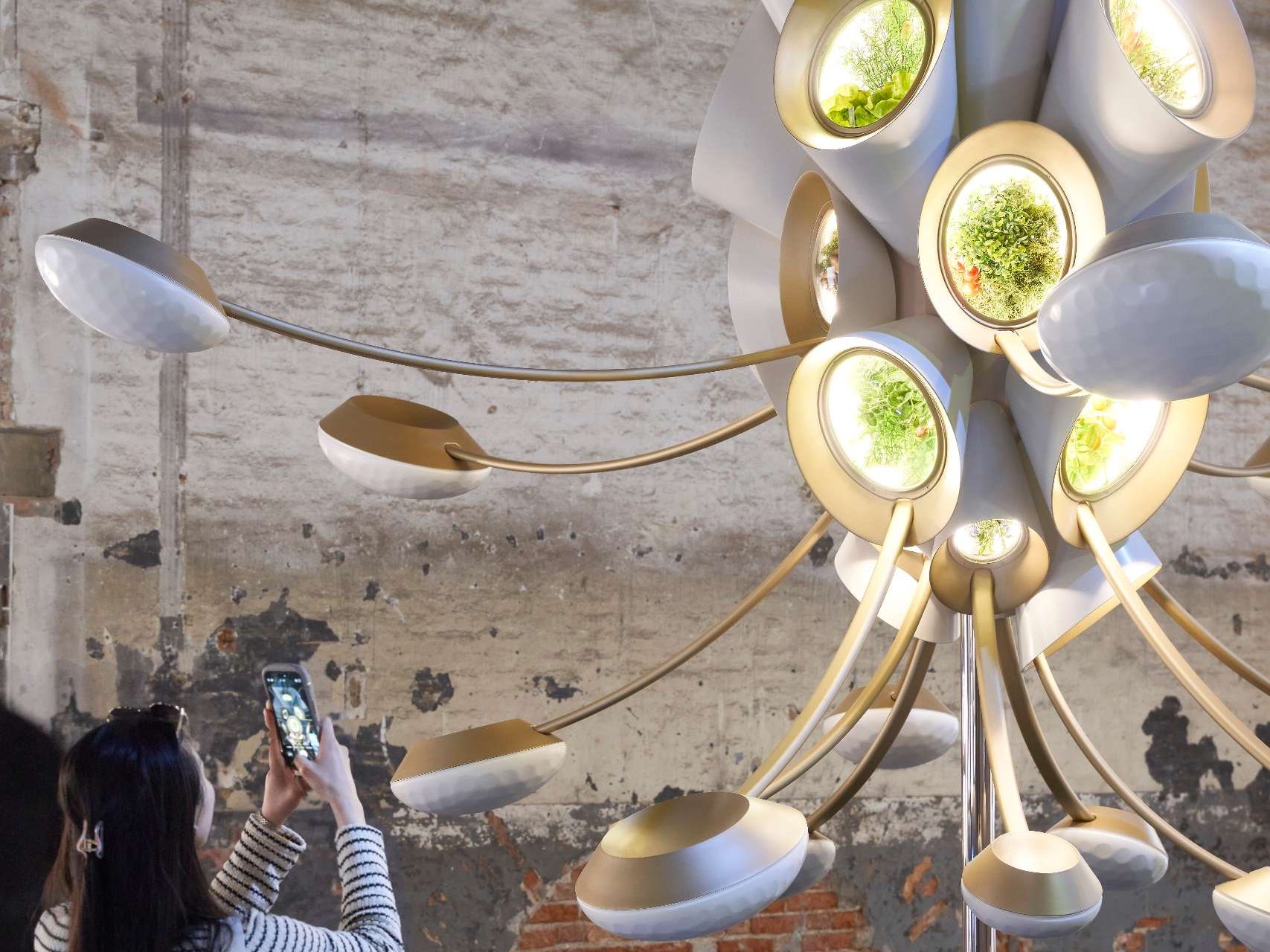
Photography by Nils Koenning
A futuristic greenhouse designed for low Earth orbit is giving us a glimpse into what life in space could look like, and it’s not all metal and survival gear. Called Space Garden, the project is a bold collaboration between Heatherwick Studio and the space architecture nonprofit Aurelia Institute.
Instead of focusing on the usual cold, sterile space environments, Space Garden takes a different approach, one that puts nature, beauty, and human well-being at the center. The structure is designed as an orbiting greenhouse, made up of 30 pods, each one holding a different plant species. At the center is a standout: a pomegranate tree, chosen for its deep cultural and historical significance.
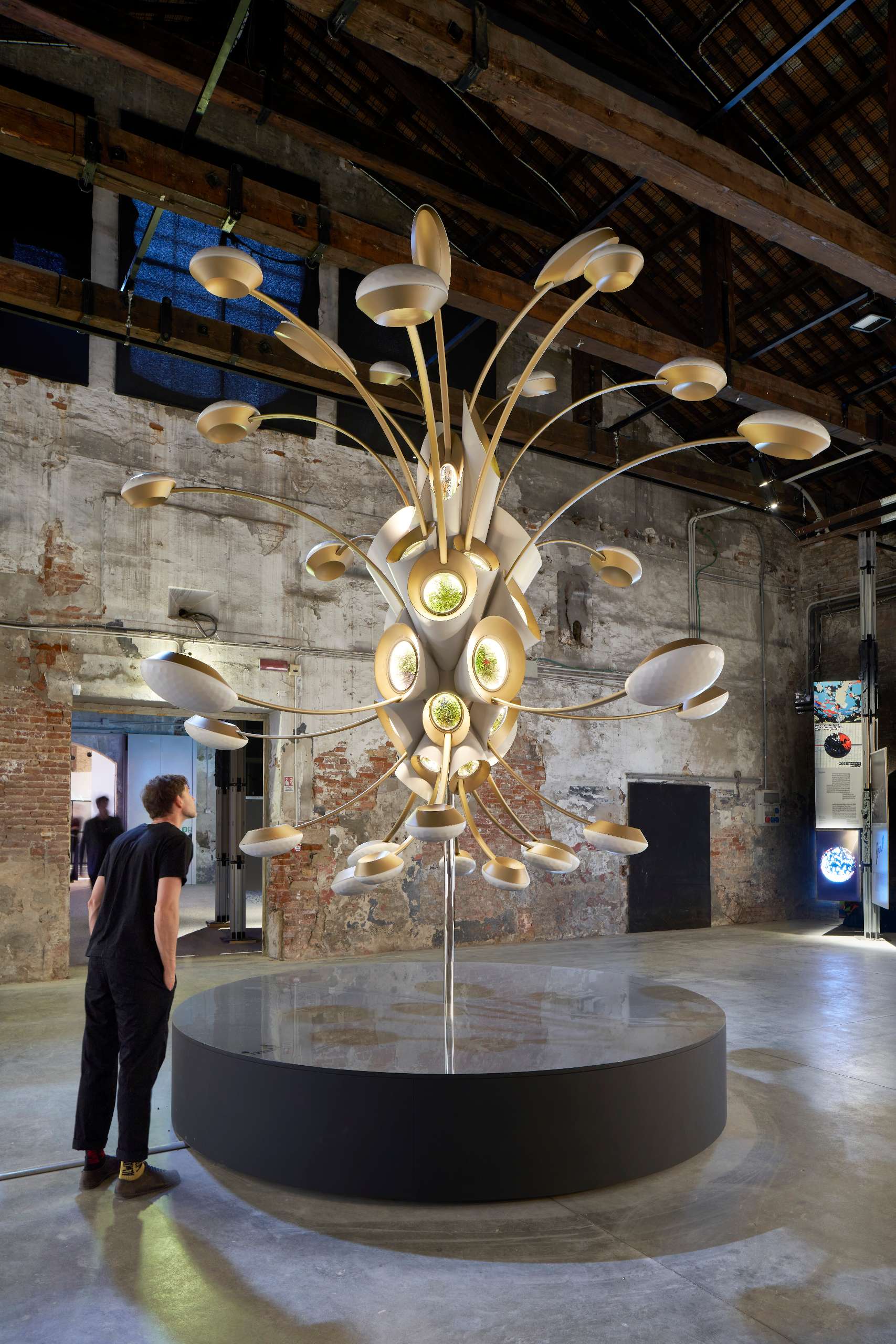
Photography by Nils Koenning
The whole model is big, 4 meters by 4 meters, and was built by UK-based fabrication experts Millimetre, who specialize in precision architectural builds. Photovoltaic cells line the outside to collect solar energy, and the pods are designed to open and close, adjusting for light and shielding from space debris.
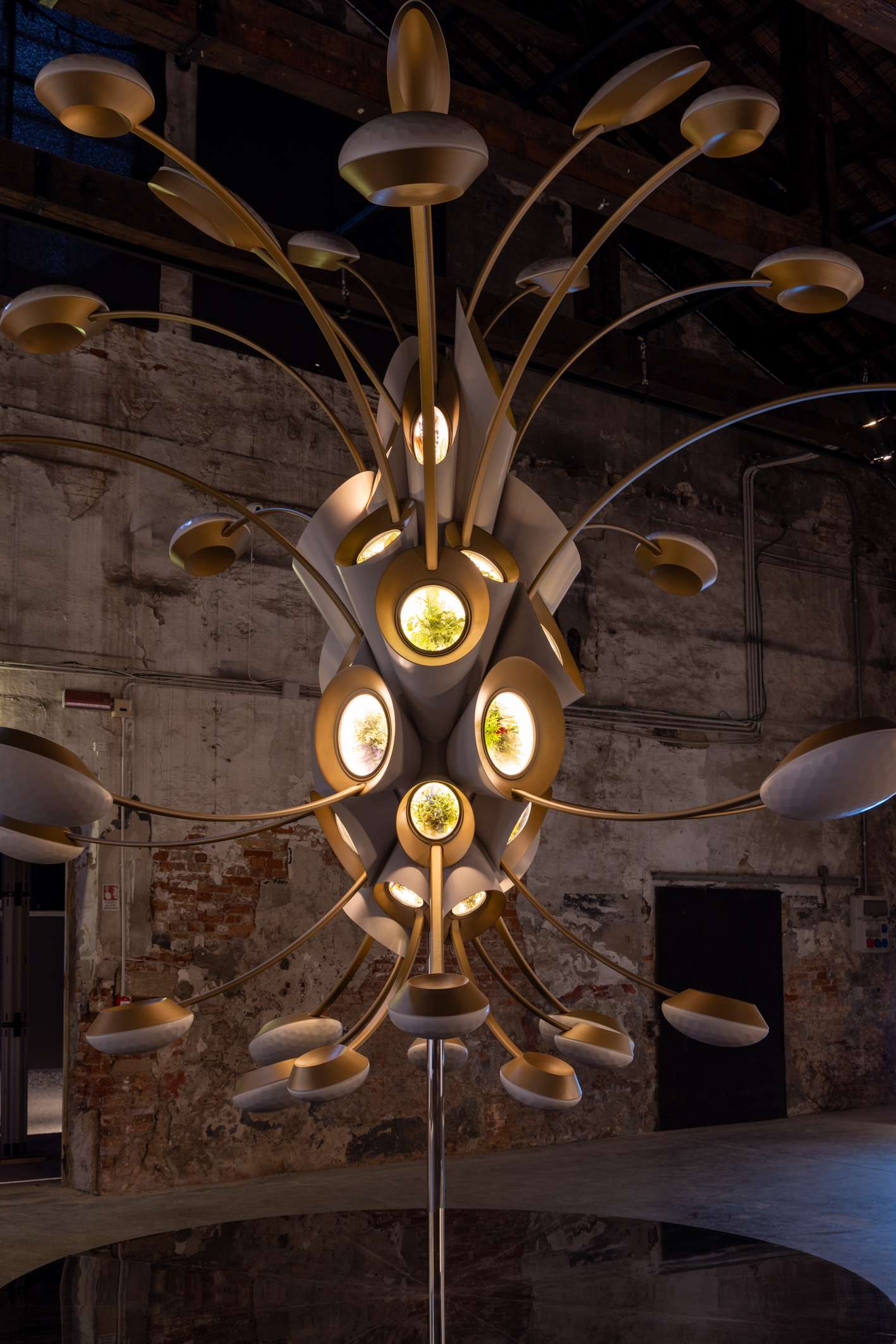
Photography by Marco Zorzanello – courtesy La Biennale di Venezia
So why build a garden in space? According to designer Thomas Heatherwick, the goal is to move beyond just surviving in orbit, and to start thinking about how we can actually thrive. “Space habitats have always been about survival,” he says. “Space Garden started as an experiment in humanizing space, by growing the kinds of plants that help with mental health in small environments.”
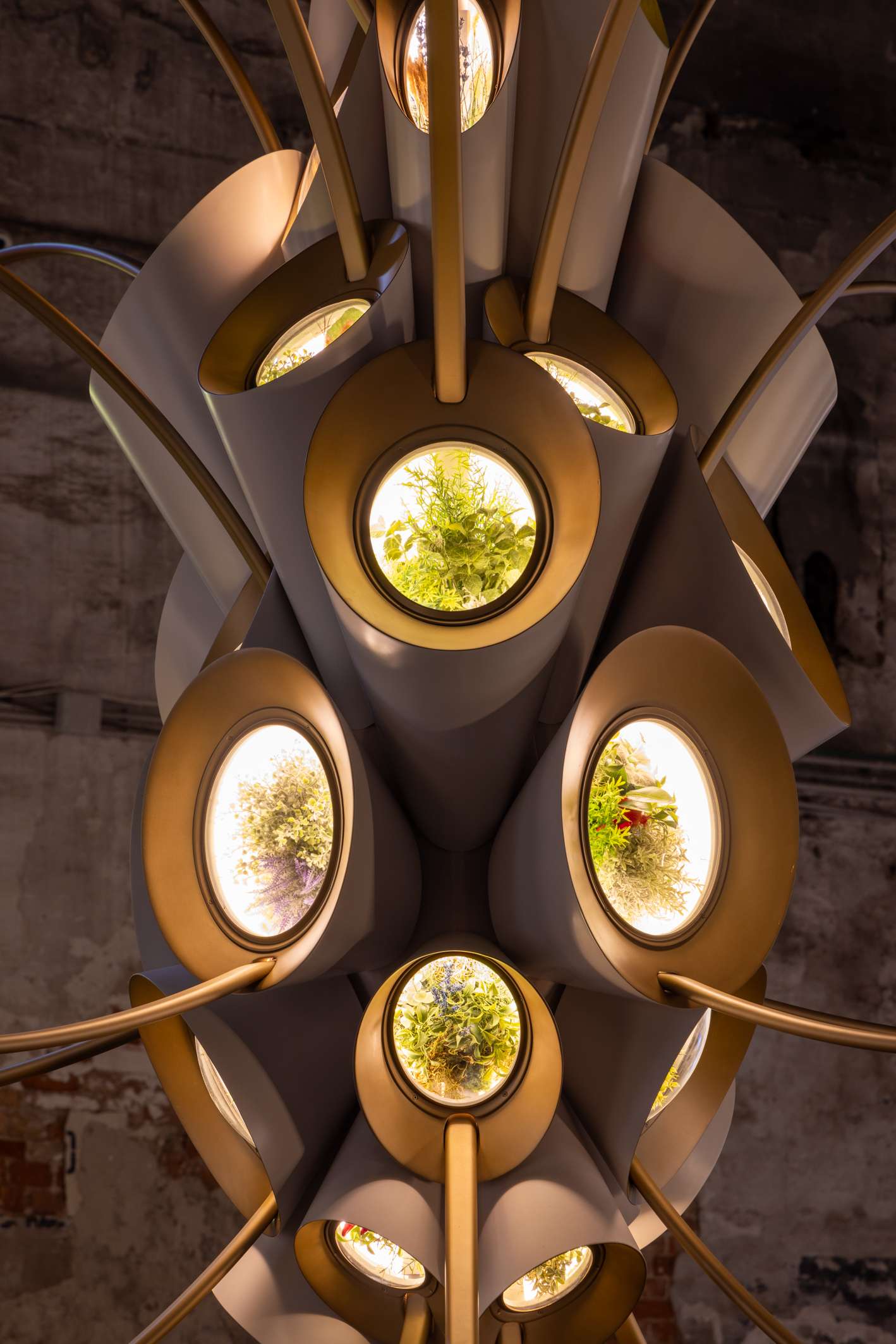
Photography by Marco Zorzanello – courtesy La Biennale di Venezia
But the idea goes further than that. By using the unique conditions of space, like microgravity, to grow plants and possibly even manufacture materials more efficiently, the team behind Space Garden hopes to unlock new possibilities that benefit life back on Earth too.
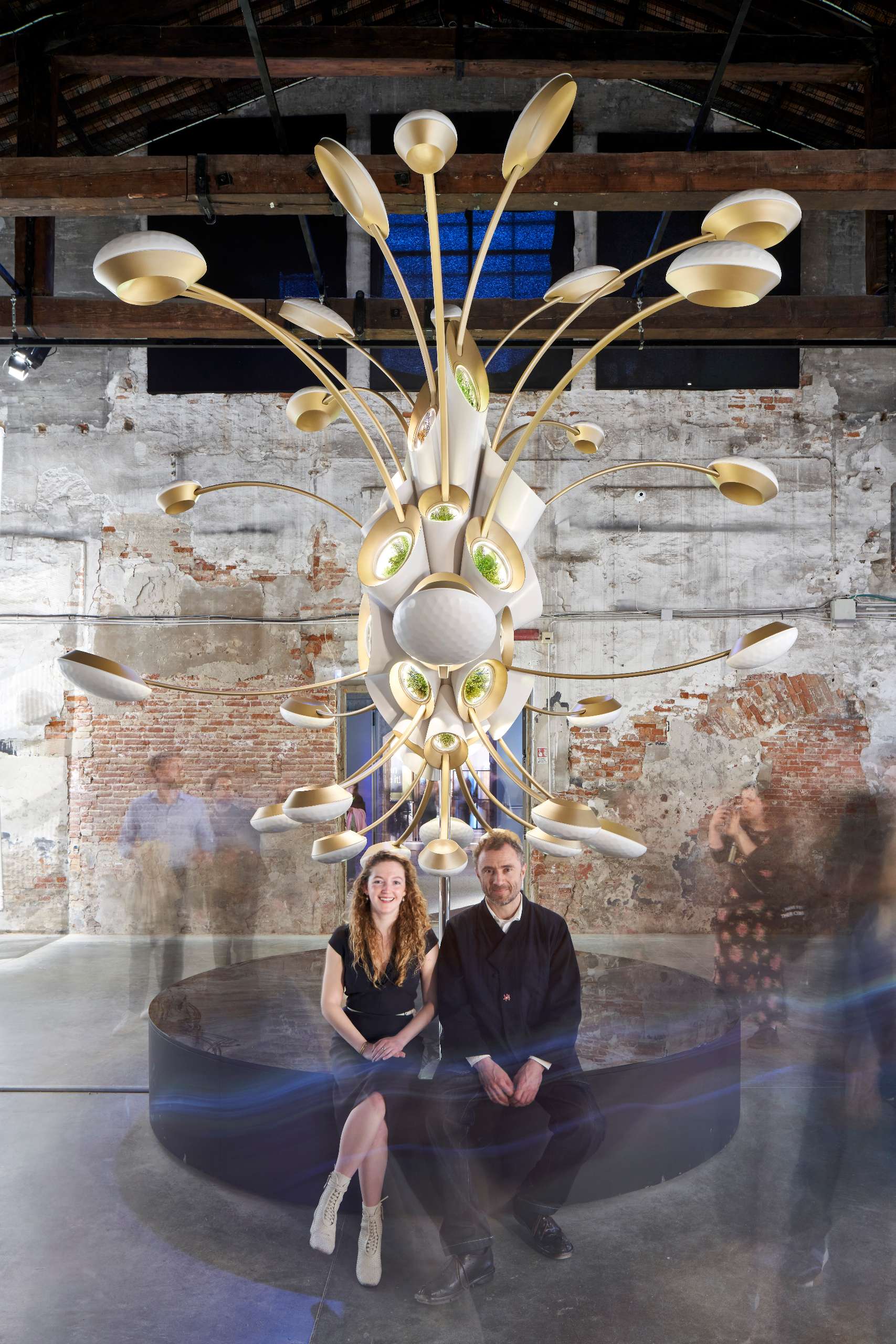
Photography by Nils Koenning – Photo of Ariel Ekblaw of Aurelia Institute and Thomas Heatherwick of Heatherwick Studio
Ultimately, Space Garden is both a technical prototype and a piece of speculative design, showing what it might look like to bring nature with us into space.